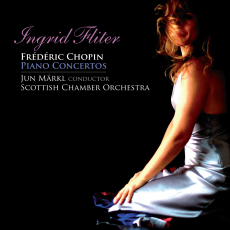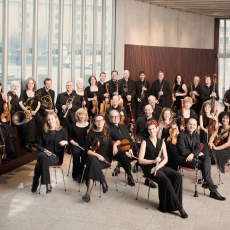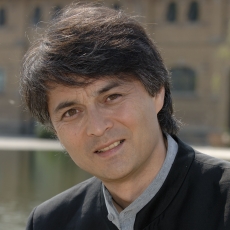Ingrid Fliter - Scottish Chamber Orchestra - Chopin: Piano Concertos - MusicWeb International
As it so happened, this
CD arrived for review the day after I had encountered this pianist in a
performance of the Beethoven Fourth Piano Concerto in Hoddinott Hall, Cardiff - a
concert that was also broadcast live on Radio 3. At that concert I had been impressed
by Fliter's strength of tone as well as her subtlety. These are two virtues
that stand her in good stead in the music of Chopin. What we hear are big-boned
performances of the two piano concertos, supported by an orchestra that sounds
far from ‘chamber' in scale - all in the resonant acoustic of Usher Hall. I
have also been impressed by the developing career of Jun Märkl, an interpreter
who pays real attention to a composer's scores, and often finds unexpected
nuggets of interest even in those which the listener thought they knew well.
Fliter and Märkl
make an excellent and responsive partnership in this standard coupling of the
two Chopin piano concertos. The orchestra, as I have indicated, sounds more
substantial than one would expect from the sheer number of players involved;
but this means that there is plenty of give-and-take. Given Linn's excellent
engineering, the realism of the sound is tangible with a gorgeous bloom on all
the instruments; I listened in stereo rather than the multi-channel option. To
cite just two moments of sheer enchantment, the sense of inner rapture that
Fliter captures at 11.22 in the first movement of the Second Concerto (track 4) is magic indeed. The
orchestral playing at the start of the slow movement in the same concerto
(track 5) has an atmosphere of stillness that sets the scene ideally for the
dreamy initial entrance of the soloist.
The coupling of
these two concertos is a staple of the CD repertoire, and preference for one or
another individual pianist will govern the choice of potential Chopinophile
purchasers. Those who are looking for an excellent performance in modern sound
will find this disc admirably fits the bill. The value of the issue is enhanced
by substantial and informative notes (ten pages) by Michael Quinn.



